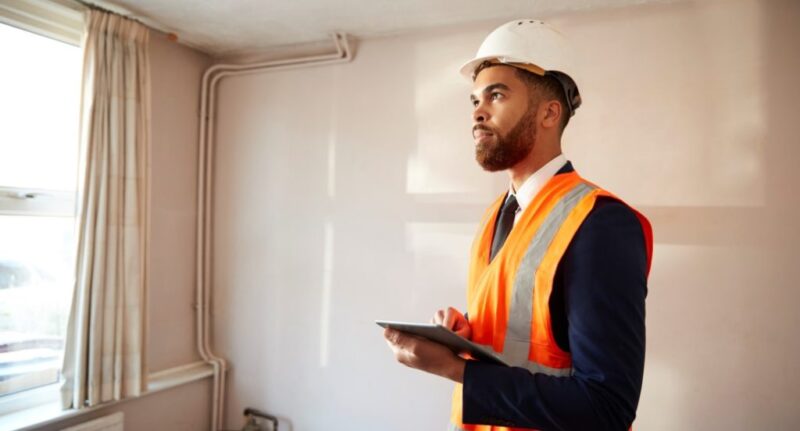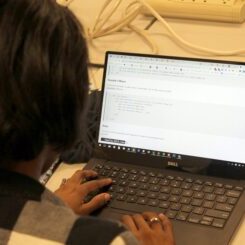A Day in the Life: The Property Inspector

Property inspectors play a vital role in maintaining the quality, safety, and compliance of rental properties. For those working in residential property management companies in the UK, their daily routine is a blend of technical inspection, tenant interaction, and detailed reporting. This article explores what a typical day looks like for a property inspector, with a special focus on the unique challenges and considerations during the busy student move-out season.
Planning and preparation
A property inspector’s day usually begins with reviewing the schedule and preparing for upcoming inspections. This involves:
- Reviewing inspection appointments: Inspectors check their diary for the properties to be visited, noting any recent interaction, special instructions or repair requests.
- Checking equipment: The tools of the trade include a tablet or smartphone with the company’s digital inventory and inspection software, a camera for photo evidence, measuring tools, and safety equipment.
- Checking legal and compliance updates: Staying informed about the latest regulations such as the Homes (Fitness for Human Habitation) Act 2018 is crucial to ensure inspections meet statutory requirements.
Preparation also includes contacting tenants to confirm appointments, providing at least 24 hours notice as required by law, and explaining the purpose of the visit to maintain good tenant relations.
Conducting inspections
The core of the property inspector’s day is spent visiting properties. Each inspection typically follows a structured process:
1. Arrival and tenant interaction
Upon arrival, the inspector will explain the inspection process. It might be that the tenant feels as if they’re being checked up on, so this helps build rapport and reassures tenants that the inspection is routine and in their interest.

2. Property condition assessment
The property inspector conducts a thorough check of the building’s interior and exterior, focusing on:
- Cleanliness and general upkeep: Checking for signs of neglect or damage beyond reasonable wear and tear.
- Safety compliance: Ensuring smoke alarms, carbon monoxide detectors, and other safety devices are functional.
- Structural and cosmetic issues: Looking for damp, mould, cracks, or damage to fixtures and fittings.
- Tenancy breaches: Identifying any unauthorised alterations, overcrowding, or activities that violate the tenancy agreement.
Digital tools allow inspectors to record detailed notes, take time-stamped photos, and update inventories in real time, enhancing accuracy and efficiency.

3. Reporting and follow-up
After the inspection, the property inspector compiles a comprehensive report, often generating a PDF document that is shared with landlords and tenants. This report highlights any issues found, recommends necessary repairs or maintenance, and tracks the property’s condition over time.
Administrative duties and coordination
After the inspections, inspectors typically need to spend time on:
- Updating property management systems: Logging inspection reports and updating digital inventories.
- Coordinating with maintenance teams: Scheduling repairs or follow-up inspections based on findings.
- Communicating with landlords and tenants: Addressing queries, explaining inspection outcomes, and advising on property care.
- Planning upcoming inspections: Ensuring periodic inspections are scheduled in line with tenancy agreements and legal requirements.
Challenges and rewards of the role
Property inspectors must balance technical expertise with interpersonal skills. The role demands:
- Attention to detail: Spotting subtle issues that could escalate if ignored.
- Legal knowledge: Understanding landlord and tenant rights, safety standards, and inspection protocols.
- Communication skills: Managing tenant expectations and reporting clearly to landlords.
- Physical stamina: Inspecting multiple properties, often climbing stairs and moving furniture.
Despite these challenges, many inspectors find the role rewarding as they contribute directly to maintaining safe, comfortable homes and protecting landlords’ investments
Is this for you?
A day in the life of a property inspector in the UK residential sector is dynamic and multifaceted. From meticulous property assessments and tenant interactions to detailed reporting and coordination with maintenance teams, inspectors are essential to effective property management.
For property management companies, investing in skilled inspectors and digital inspection tools ensures properties remain compliant, tenants are satisfied, and landlords’ assets are safeguarded – making the property inspector’s role truly integral to the rental market ecosystem.
If you’d like to learn more about property inspections or how Urpad.property supports landlords and inspectors with innovative digital solutions, feel free to get in touch.
